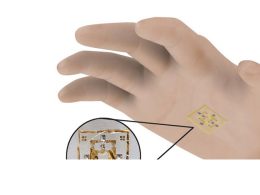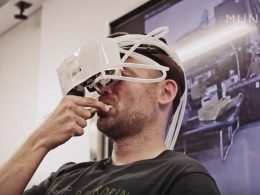A German study suggests that virtual reality has an influence on the perception of reality. However, there is no reason for concern so far.
As reports of experiences in which VR users spoke of a shift in reality became more frequent, a group of German researchers set out to investigate the phenomenon with scientific methods. This refers to the experiences of gamers who take off their glasses and for a short time feel as if they are still in a virtual environment.
In psychology and psychiatry, we speak of depersonalisation (DP) and derealisation (DR). Derealisation means that the environment seems strange and unreal; in depersonalisation, this feeling refers to one's own person. These are two different phenomena, but they are closely related.
Carina Peckmann, Kyra Kannen, Max C. Pensel, Silke Lux, Alexandra Philipsen and Niclas Braun from the Department of Psychiatry and Psychotherapy at the University Hospital Bonn have investigated in a study whether virtual reality can cause such phenomena. The results were published in February in the journal Computers in Human Behavior.
Test subjects played Skyrim VR
"Since VR is a technology that can strongly influence reality experience, at least during VR consumption, we wondered whether virtual reality also influences reality experience in relation to the 'real world' after VR consumption," study leader Niclas Braun tells Psychology Blog PsyPost.
For their randomised controlled longitudinal study, the researchers selected 80 participants without psychiatric or neurological disorders. 40 played the original 2D version of the role-playing game Skyrim on a monitor, 40 the more immersive VR port with VR glasses.
Using a standardised questionnaire, the so-called Cambridge Depersonalization Scale (CDS), the individual degree of depersonalisation and derealisation (DPDR level) was determined at four different points in time: immediately before the gaming session, immediately after the gaming session, one day after the gaming session and one week after the gaming session.
In addition to the questionnaire, a number of other tests were carried out in which emotional responsiveness, the degree of motion sickness and perception of reality were evaluated.
The research team gives the all-clear
The study found that both 2D and VR consumption temporarily caused mild DPDR symptoms, with VR use having a significantly stronger effect in this regard. The group was unable to measure longer-term shifts in the perception of reality in either case.
"Our study provided further evidence for the development of DPDR symptoms by VR techniques and is the first study to demonstrate this finding with an adequate control group," the group writes in the study conclusion. "However, the DPDR effects found do not appear to be clinically relevant in their intensity and, based on our data, no evidence can be provided for a long-term DPDR effect after single VR consumption."
In other words, the influence of VR on reality perception occurs only shortly after VR use and is so minor that it does not pose a risk.
VR influence: many questions are still unanswered
The study has a number of limitations that necessitate further research. The group points out that the gaming sessions only lasted 30 minutes each and that only one game was tested.
What if someone plays in VR for two, four or eight hours at a stretch and does so every day for a longer period of time? And what effect do other, more realistic VR games have on the perception of reality?
The group also only studied healthy test subjects. How VR affects people with mental disorders or psychoses is not known. So many questions are still unanswered.
The study entitled Virtual reality induces symptoms of depersonalization and derealization: A longitudinal randomised control trial you could call up free of charge on the Internet.
Source: Mixed









